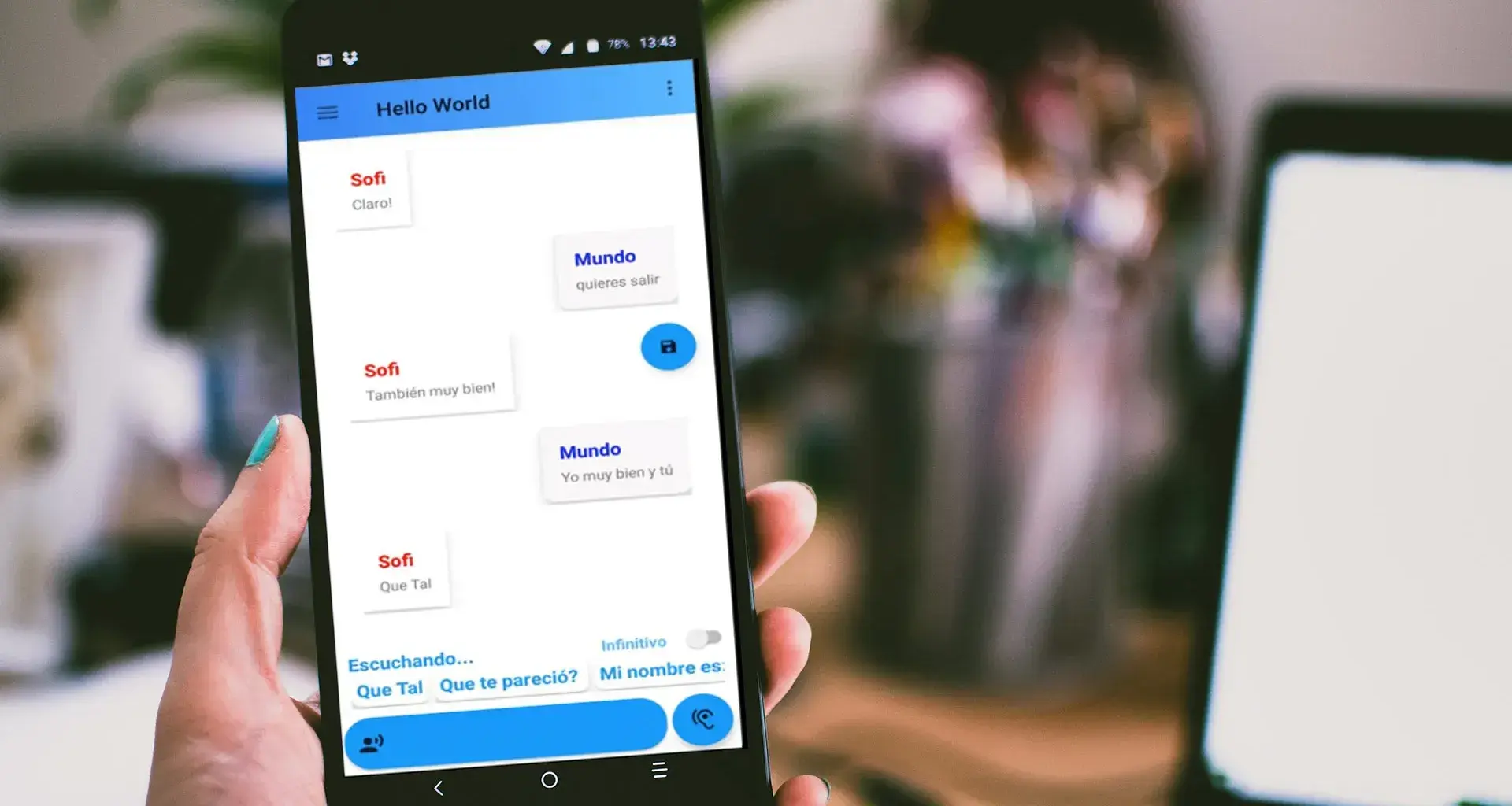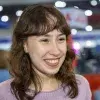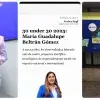Hello World is a social enterprise that looks to integrate people with hearing and communication disabilities into society.
Students from Tecnológico de Monterrey’s State of Mexico Campus use a mobile application to provide tools so that deaf people can communicate with hearing people efficiently.
The application will allow users to:
- Take classes
- Converse fluently with deaf and hearing people
- Go to the doctor’s
- Improve their employment opportunities
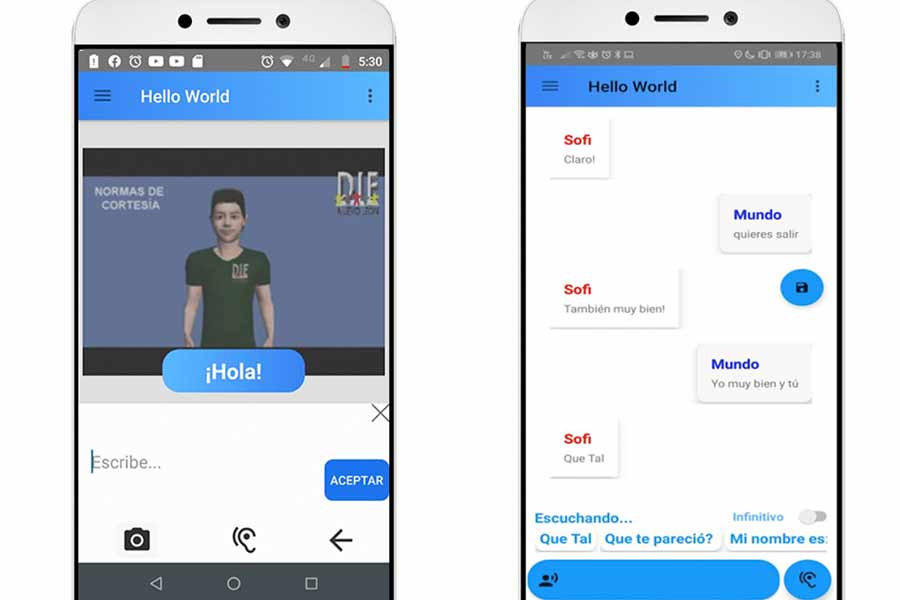
This initiative is aligned with four of the UN’s Sustainable Development Goals.
- Quality Education: helping deaf people to be included in public education.
- Decent Work and Economic Growth: improving economic growth through inclusion.
- Reduced Inequalities: promoting a better quality of life through inclusion.
- Strengthening the Global Partnership for Sustainable Development: working together for the greater good.
The 17 Sustainable Development Goals were adopted in 2015 by United Nations (UN) member countries, along with the commitment to achieve them by 2030.
“I think that the project has great potential to help include people with hearing disabilities, because everyday activities such as going to the bank are very complex for them.
“Imagine that you’re a deaf person and you’re really angry when you go to the bank because you have an unexpected charge to your account. You can’t complain to the people who are there because they don’t speak sign language,” Ximena explained.
“Now, in the ongoing pandemic, how can you read lips if everyone’s wearing face masks? That kind of thing builds barriers. All institutions need to be inclusive, not just pay lip service to the idea,” she says.
How did it come about?
The initiative started in 2018 in Zitácuaro, Michoacán, the home of Jairo Ramírez, a Mathematics and Data Science Engineering student and member of the sixth cohort of the Leaders of Tomorrow program.
“I realized that the main problem at the school I was in was that there was a lack of inclusion and tools allowing us to communicate with deaf people.
“We were able to get this project validated by four institutions in Michoacán. It’s the same project I used to get into Leaders of Tomorrow,” he explains proudly.
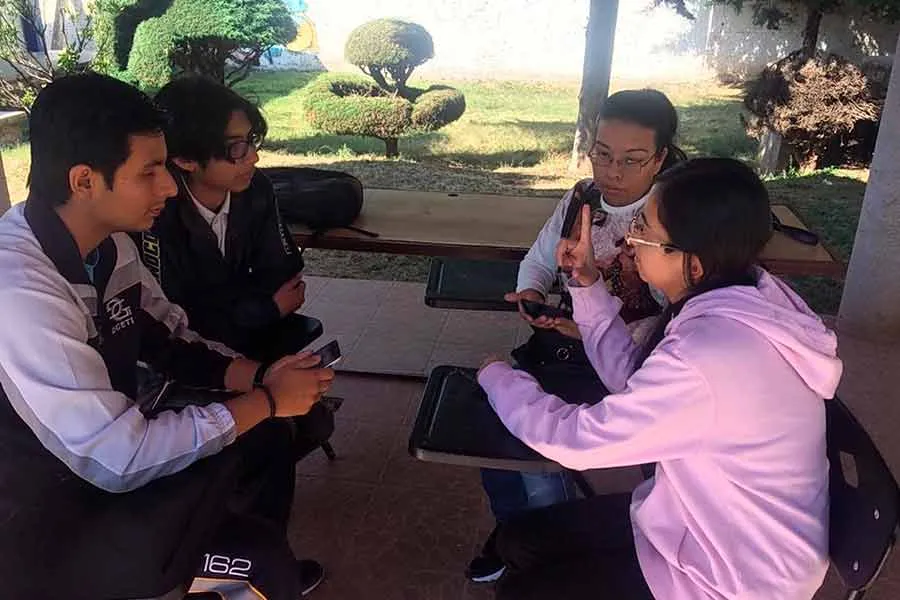
Leaders of Tomorrow is a program focused on enhancing the training and development of bright and talented young Mexicans who are interested in improving society and whose socioeconomic status means they require a 100% scholarship to be able to study at the Tec and become the agents of change that Mexico needs.
“Fortunately, I got the scholarship to study at the State of Mexico campus. In September 2019, we had the opportunity to go to the Michoacán science expo to present this project.
“There, we were invited to the International Symposium on Artificial Intelligence, Computing, and Robotics to present this technological initiative for disability inclusion. However, as a result of the pandemic, it has been postponed until conditions allow it to take place,” he shares.
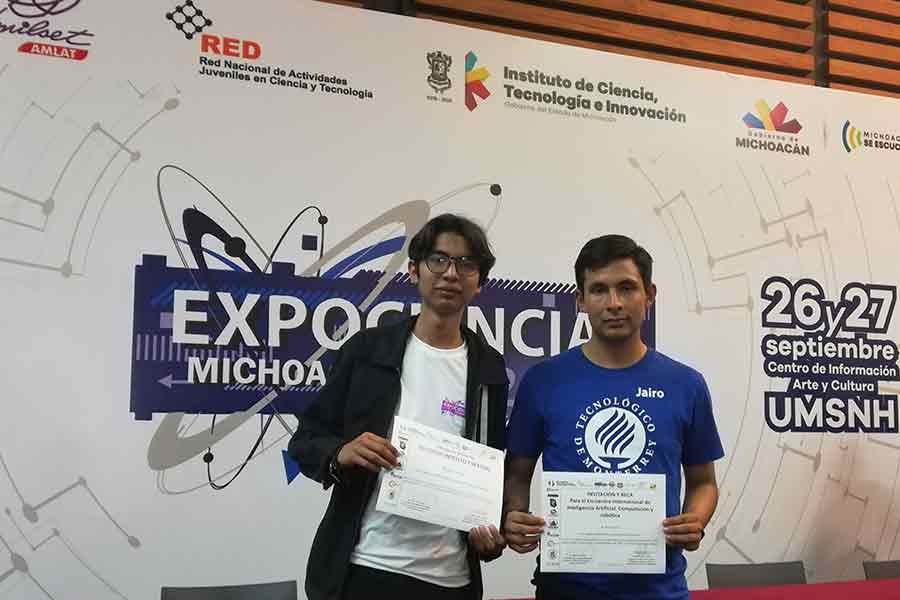
As a member of the sixth Leaders of Tomorrow cohort, and with the intention of making his project grow, Jairo shared his ideas with colleagues in the program, which is how Margarita Jimenez, Nadia Venegas, and Ximena Martínez came to join him.
Later, Arely Anguiano, a member of the seventh Leaders of Tomorrow cohort, would also join the team and share new ideas.
“My team are Leaders of Tomorrow that I already knew. They’re very hard-working and they’re also my friends.
“Right now, we have a team of six people: five of them are Leaders of Tomorrow, and one is an external collaborator, who’s the person I began the project with in Michoacán. His name is Miguel and he’s studying at the Autonomous University of the State of Mexico,” he shares.
From altruistic idea to social enterprise
This project has evolved thanks to the support of the Mexico City Region’s Leaders of Tomorrow Hub.
The Leaders of Tomorrow Hub is a space at the Eugenio Garza Lagüera Institute of Entrepreneurship that supports projects developed by students on the program.
Through support, mentoring, and working with Training Partners to validate and develop the model, students are given the tools to make progress on solutions and continue to develop their projects.
“Initially, it was simply a social idea: helping people just for the sake of it. Later, we realized the potential of becoming a company, so we could help on a much bigger scale.
“As a result, we had many more tools available, many more contacts who could help, and we could do more things to help people and keep the project sustainable,” explains Jairo.
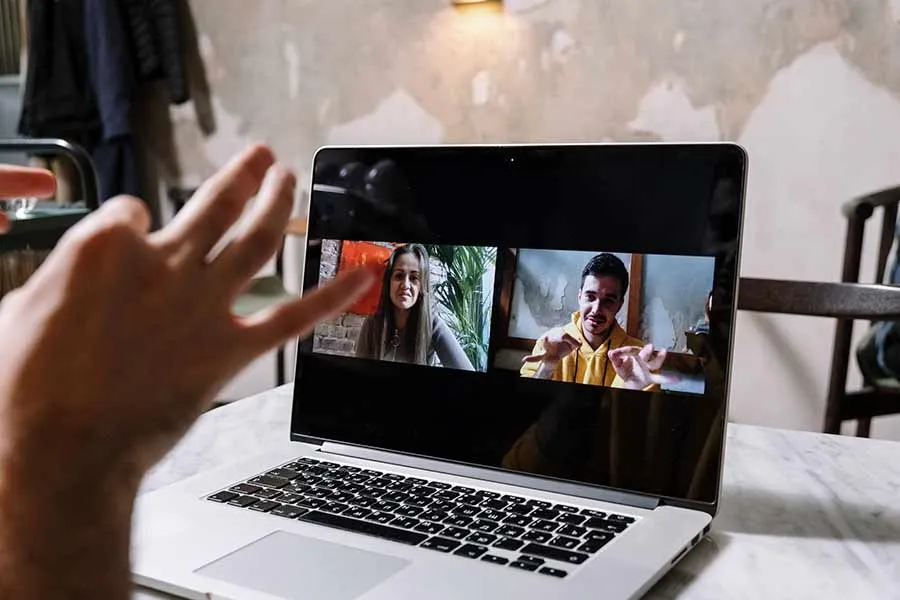
The students are now looking to take the project beyond being just an application and want to become an inclusive software development company.
“Clearly, inclusion is the basis for the development of a society: if people cannot join the workforce or enter a learning environment, this simply prevents the economy from growing and their society from changing.
“The fact that one person is prevented from doing so stops us all. We should recognize that first. Also, the company is not just about the application that we’re developing. We want to provide other services as well. Above all, we want to educate companies on how to become inclusive,” Jimena added.
In a couple of weeks, the students will begin working together with the DIF (National System for Integral Family Development) in Tlalnepantla, State of Mexico, to help people from the deaf community who visit that institution.
“We’re about to sign an agreement with the DIF in Tlalnepantla to validate our project and bring Hello World to all the people with hearing disabilities there,” concluded Jairo.
YOU’LL DEFINITELY WANT TO READ THIS TOO:

